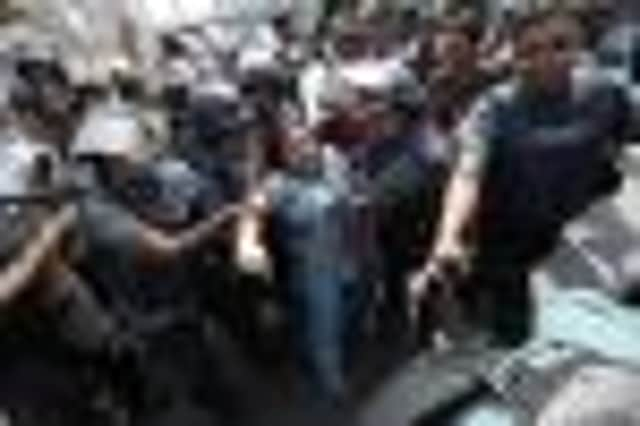Bangladesh’s future at stake as protests continue


For a month, moderate activists have camped at a Dhaka intersection demanding harsh punishment for those accused of crimes during the 1971 independence war with Pakistan.
Meanwhile, their bitter enemies in the hardline Jamaat-e-islami opposition party – that wants to enact Shariah law – have been attacking government buildings and setting fire to trains in a rampage that has killed more than 60 people. Jamaat-e-islami says the government is using a war crimes tribunal to decimate the party leadership, and claims it is in a fight for its existence.
Advertisement
Hide AdAdvertisement
Hide Ad“Our backs have been pushed to the wall. If we can’t stop the fascist government from holding the trials, all our main leaders will be hanged,” said Rafiqul Haq, a Jamaat leader based in Dhaka’s Uttara district. “We will die rather than let the government kill our leaders.”
The latest round of violence – sparked by the tribunal sentencing senior party leader Delwar Hossain Sayedee to death – has prompted calls for Jamaat to be branded a terrorist organisation, and law minister Shafiq Ahmed told parliament this week that the government was looking into ways to ban the party.
Looming over the protests and violence are general elections expected within the next year, and fears that in a country with a history of coups, the military might take over.
“The people are deeply worried about what is going on,” said Hassan Shahriar, a political analyst. “If the violence continues, the government may hit back with harsh measures like a state of emergency.”
Military intervention is possible as well, he said.
Much of the chaos centres on the fate of Jamaat, the country’s largest Islamic party. Its leaders are facing charges they helped Pakistani forces in the fighting four decades ago, which Bangladesh says left three million people dead and 200,000 women raped.
Jamaat had opposed breaking away from Pakistan, arguing that staying as one strong Muslim-majority nation would be better for Islam. Citizen brigades formed by Jamaat helped Pakistani forces identify independence activists. Jamaat leaders deny any link to war crimes.
After independence, founding president Sheikh Mujibur Rahman, father of current prime minister Sheikh Hasina, banned the party and stripped many of its leaders of citizenship. But he was killed in 1975 and military ruler Ziaur Rahman, husband of current opposition leader Khaleda Zia, lifted the ban and wooed Jamaat as an ally for his Bangladesh Nationalist Party.
Though Jamaat has never been very successful at the ballot box, it has been an important coalition ally for Zia.
Advertisement
Hide AdAdvertisement
Hide AdDespite its violent history, Jamaat developed a loyal following by devoting attention to the poor. It runs charities, hospitals and hundreds of Islamic schools.
At the same time, its ideology has failed to make much headway in the country, where many look down on it as a local version of Pakistan’s Taleban. And many remain angry that the party never apologised for its role in the war.
When the war crimes tribunals inaugurated by Ms Hasina began handing down decisions earlier this year, lines were drawn. Many cheered that the country was finally dealing with its past. Others lashed them as a plot to destroy the opposition, since 11 of the 12 defendants are politicians from Jamaat and Ms Zia’s opposition party.
“The trials are nothing but a ploy to hide the failures of the government,” Ms Zia said.